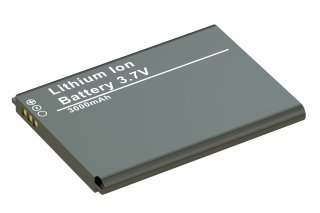Workshop on Lithium-Ion Batteries in the Waste Stream
On this page:

About the Workshop
EPA hosted a virtual workshop on solutions to prevent fires from end-of-life lithium-ion batteries (LIBs) in the waste stream and to discuss how to increase recycling of lithium-ion batteries. The workshop was held on October 5, 2021, and October 19, 2021, as two half-day sessions.
The workshop addressed the increasing risk of fires from improper disposal of lithium-ion batteries, particularly from consumer electronics, as they become more common in the waste stream. When damaged, LIBs can short circuit and catch on fire, creating a hazard for workers, communities, and the infrastructure that handles
waste collection and management.
EPA gathered interested parties from multiple sectors to encourage discussion of the end-of-life issues around these batteries from a variety of viewpoints. Attendees included battery and electronic recyclers; battery collectors; hazardous and municipal waste managers; household hazardous waste managers; manufacturers; insurance agents; and state, local, and federal government officials.
Summary Report
EPA compiled a final summary report (pdf), which includes the main takeaways from the workshop, as well as summaries of participant discussions on six separate breakout group topics: education, collection, labeling, design, recycling of small-format lithium-ion batteries, and recycling of large-format lithium-ion batteries.
The participants discussed potential approaches to addressing these issues from all stages of a battery’s lifecycle, including the following examples:
| Category | Key Message |
|---|---|
| Design | Design products to have easily removable batteries, stronger cases to protect against damage, and/or stronger internal separators to prevent short circuiting. Incentivize manufacturer-led design and systematic changes through extended producer responsibility, minimum recycled content requirements, or by adding LIBs to the battery chemistries covered by the 1996 Mercury-Containing and Rechargeable Battery Management Act. |
| Labeling | Use QR codes, color codes for repairability, and/or labels with information on how to manage LIBs (e.g., direct users to send them to a specific type of recycler). |
| Education | Develop education toolkits for consistent messages on the risk of fires and where/how to dispose of LIBs and support state/local government outreach efforts. |
| Collection | Make recycling more convenient by expanding the number of collection sites. Create incentives for recycling batteries through deposits or other mechanisms. |
| Recycling | Clarify and streamline permitting and regulations, including updating the 1995 Universal Waste Rule for LIBs specifically or creating an exemption for waste LIBs that are recycled. |
EPA Lithium-Ion Battery Disposal and Recycling Workshop, Summary Report (pdf)
